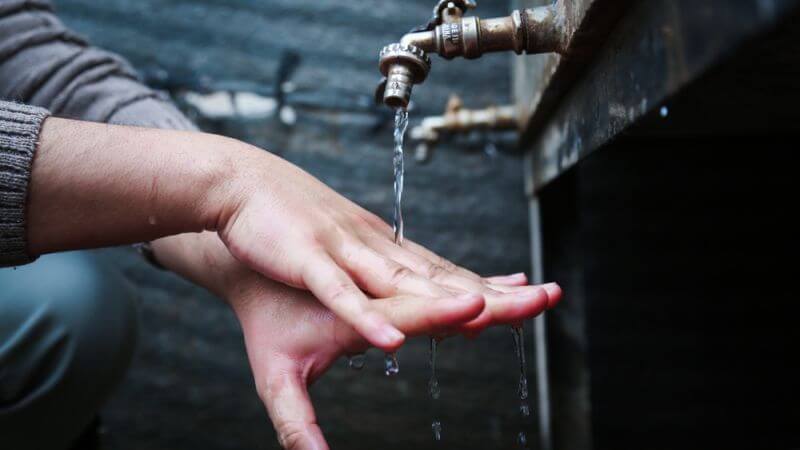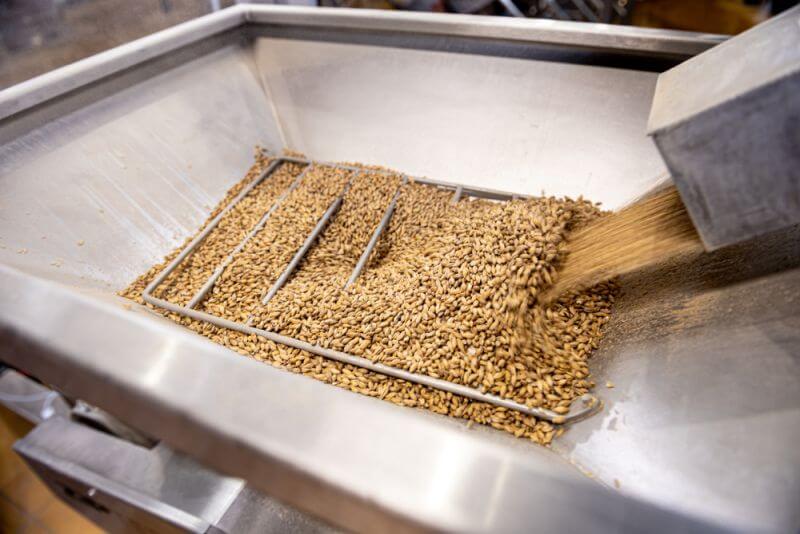There are a thousand things involved in survival, almost all of which are important. While we all tend to focus on our top survival priorities, there are plenty of other things out there which can kill us, ranging in size from microorganisms to four-legged carnivores. Neither of those extremes cares much about us and the lives we want to live. They’re interested in living their own lives and if that means they need to take us out, they are more than happy to do so.
By and large, we pay more attention to the higher end of that scale than the lower, although the lower can be even deadlier. Microorganisms don’t see us as sentient beings, just as an environment for them to grow and multiply in. As they do that, they can cause disease in our bodies, even serious disease, unto death.
Times of epidemic and disease often follow disasters. This is, in part, due to the increase in rats, flies and other disease carrying critters. But it is also due to a lack of proper hygiene. Our mothers weren’t just being mean to us when we were children, making us wash our hands and bathe. Rather, they had already leaned the lesson of how important cleanliness was to health. Those lessons are important to remember in any survival situation, in order to avoid succumbing to disease.
But there are other lessons as well, which are just as important; those about keeping our home or survival shelter, and the surrounding area clean. This is both to discourage those disease-bearing critters, and to reduce the quantity of dangerous bacteria growing and getting into our food, water and lives.
Start with Toxic Substances
Of all the toxic substances we could find ourselves dealing with, human waste is the most toxic. As a society, we devote billions of dollars to dealing with this waste and ensuring that it doesn’t contaminate our food and water supplies. While our modern sewage treatment systems are much more sophisticated than they were in ancient times, the history of sewage systems goes back to 2500BC.
Obviously, you and I can’t take over the operation of our local sewage treatment plant, especially without electricity to run it. Nor can we effectively put together a replacement sewage system for our town or even for our neighborhood. Even so, there are lessons from those early systems, which have been in use since that time; lessons that are easily implemented in our own survival plans.
We can find these principles embodied in early outhouses; a common phenomenon in early American culture. A properly designed outhouse will do more than serve as a repository and storage tank for waste, it also works to separate the solids from the liquids, allowing the liquids the opportunity to soak into the ground and then evaporate into the air.
In a sense, this is just like a septic tank system, on a smaller basis. An outhouse only deals with the waste that would normally go down the toilet, while a full septic system deals with all waste water from the home. Hence, it’s need to be larger. Septic tanks typically have two tanks, connected together, and a leach field. The first tank is for the solids to settle into and the second is for the liquids (effluent) to be separated off. From there, those liquids flow into pipes, leading to the leach field, where they are allowed to soak into the ground and evaporate from there.
For our purposes, an outhouse is sufficient, as we can use all other wastewater to water our gardens. However, there are some important considerations that we need to look at, before digging a hole and erecting an outhouse over it.
The most important consideration is location. On one hand, you might think you want your outhouse close to the house, to make midnight trips easier. On the other hand, if it is too close, there’s the problem of odor to deal with. But neither of these is actually as important as the other consideration for location… that of how your outhouse might interact with your water supply. Bacteria from the outhouse can travel considerable distance through the ground, getting into a well or other in-ground water source. To prevent this, you want your outhouse as far as reasonably possible from any well or pond; hopefully at least 100 feet from them.
While looking for the ideal location, look carefully at the soil in the various places you’re considering putting your outhouse. Ideally, you want loose, sandy soil, so that the liquids can soak into it, migrating away from the solids that are left in the hole. This will help in the natural process of waste management.
As far as the stench that is normally associated with an outhouse, this can be easily solved by keeping a stock of lime on hand. This can be scattered in the hole from time to time, absorbing and eliminating odors.
Cleanliness is Next to…
While human waste is the worst of our problems, it is not the only one. Food waste can become a problem, through providing an environment for bacteria to grow, as well as attracting insects and rodents which can carry those bacteria to our water and food supplies.
Ideally, we would want to eliminate all food waste; but I don’t think that’s entirely possible. A certain amount of food waste is a normal part of the cycle of life. We participate in this by composting. But that’s only for plant-based food waste. While that can attract insects and rodents, it is animal-based food waste that has the higher bacteria count, as well as the more dangerous bacteria.
The solution for food waste is to use as much of that food as possible. What we can’t consume ourselves, can be fed to pets and farm animals, putting it to good use. Chickens will eat literally anything (including chicken), so if you have chickens, that should eliminate any food disposal problems you might have.
But this food waste we’re talking about goes beyond the obvious. Insects and rodents can feed off of some pretty small particles of food; things we would consider no more than crumbs. Taking care of the obvious food waste, without taking care of these smaller particles of food, isn’t going to solve our problem. We need to maintain our homes at least as clean as we currently do, without wasting a lot of water to do so. That can be challenging.
The starting point is in building a good stockpile of cleaning supplies, just like you’ve stockpiled food and other essential supplies. Cleaning supplies may not seem as important to your survival as food and water are; but if you want to avoid debilitating disease, they are just as important.
It may seem a bit counter-intuitive, but try to focus on cleaning supplies that are not going to require the use of water. While most cleaning tasks can be accomplished with grey water, anything you can do to conserve water is worthwhile. Therefore, avoid cleaning supplies which will have to be mixed with water, whenever you can find something that will work, without water.
A Clean Body
The other part of this is keeping your body clean, as a dirty body can also harbor the same bacteria we’re talking about. Washing our bodies does more than just remove dirt, it removes a lot of bacteria and viruses at the same time.
The trick here is in cleaning our bodies, without using a lot of water. It is possible, although not as satisfying as taking a nice hot shower.
I’ve spent a fair amount of time in developing nations, where we didn’t have running water available. To bathe, one would take a couple of gallons of water, in a five-gallon bucket, and go into the bathroom. A second plastic container, like a cool-whip container, is used to scoop water out of the bucket and pour it over one’s head, allowing it to drip down on the body. Once the hair and body is wet, which shouldn’t take more than one or two quarts of water, shampoo the hair, then work down the body cleaning it as well. Finally, use the rest of the water, judiciously, to rinse the shampoo and soap off your body.
>>> GET THE BOOK TO DISCOVER THE BOOK <<<
This sort of bath isn’t going to satisfy anyone who likes a nice long shower. But it is possible to get your body clean, which is the main idea. If you want something more, you’re going to have to find a pond or lake that you can bathe in. But don’t use soap for bathing in a pond or lake, as it can kill the marine life that depend on that habitat.
Taking this bathing idea a step further, bring your clothing into the “shower” with you, placing it on the floor. That way, the water that flows down your body can land on your clothing, wetting it too. The soap you rinse off your body can get onto the clothing as well; and your walking on it can help to agitate it, cleaning your clothes. You may still need to do some further cleaning afterwards, but by starting to clean your clothes in this manner, you avoid wasting water.
























































































I see some good information in the article. However, I also see something you said that isn’t true.
When talking about an outhouse and a septic tank leach field, you say the liquids “soak into the ground and evaporate”. This isn’t true. A liquid can only evaporate when exposed to air. If a liquid of any kind soaks into the ground, it’s not exposed to air, and therefore cannot evaporate.
Outhouses are interesting. In the old days, there were two., the good one was when a hole was dug into the ground about 8 to 10 feet deep, and a house was built over it.. there was a seat cut into an offset built over the hole where one could sit down to relieve themselves. Some had 2 seats as mine did. I don’t know why one would want to share such an event together, except in an emergency. HaHa.
The other popular outhouse was a little house built with an offset and a hole to sit on. The droppings would not fall into a hole in the ground with Ly in it but into a bucket set under the hole and on the ground. The problem was that flies would go to the Apple Pie sitting on the window sill to cool, and Diphtheria would develop..
Another neat thing about the way women in those days was that they didn’t want anyone to know they were going to the outhouse. So, the Outhouse Daffadills were born… The women would go and smell the tall flowers and make sure that no one was looking would go into the outhouse and relieve themselves.
Larry Ellis